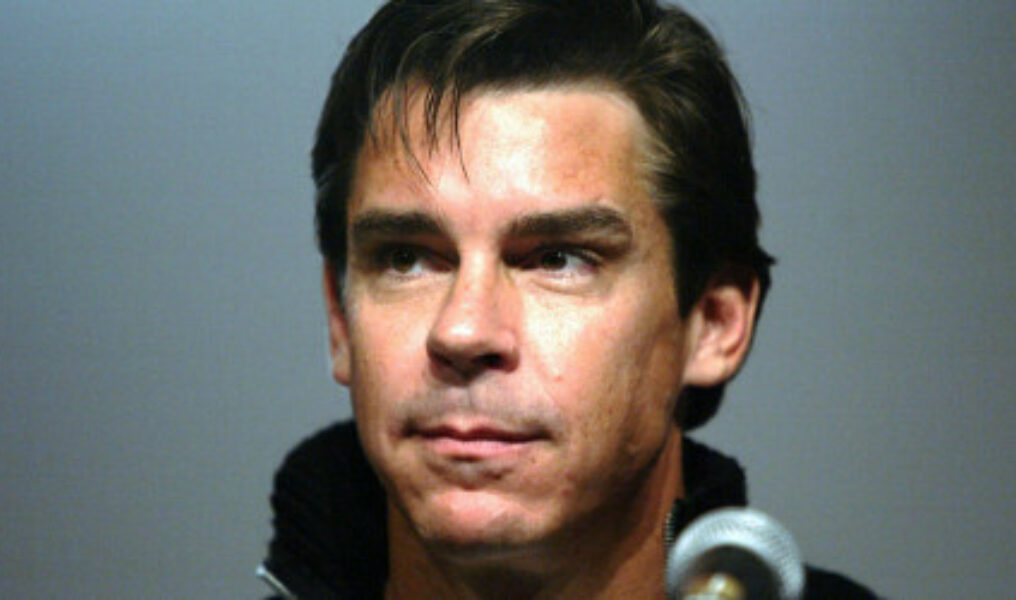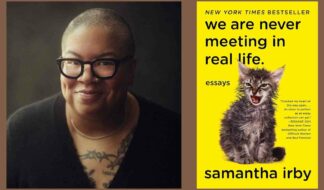In the beginning, there was nothing. If you were an LGBT athlete, coach or fan, you were on your own. You had no idea there were others like you anywhere in the sports world. You thought you were alone. Though men and women were coming out in every other area – politics, entertainment, even the military – the locker room door remained firmly shut.
Over the course of a couple of decades, of course, that's changed. There are now countless ways for LGBT people to connect with, learn from, be inspired by, and in turn in-spire others. Here are some of the biggest – and some you may never have heard of.
Outsports
The granddaddy of it all is Outsports. Since 1999, the website (www.outsports.com) has covered the LGBT sports world with a keen, insightful eye. Its bread-and-butter is coming-out stories (everyone from Michael Sam to obscure NAIA water polo players) and news (like lawsuits alleging discrimination, and teams hosting Pride nights). In 2017, reading about athletes coming out may seem like the same-old, same-old – until you realize that it's a new experience for the person telling the tale. And no matter what sport you play, overcoming adversity never gets old.
Gay Games
The Gay Games have been held every four years, since 1982. They've grown into a worldwide sporting and cultural event, open to all without regard to sexual orientation. Like Outsports, the concept can seem dated – until you see the power in numbers at one of the quadrennial events. The next Gay Games are set for this coming August, in Paris. Yes, gay Paree.
Changing the Game
GLSEN – the national organization working to make K-12 schools safe, affirming places for all students regardless of sexual orientation or expression – sponsors Changing the Game. The sports project offers resources for student-athletes, coaches, phys ed teachers and parents. As anyone who has spent any time in any school knows, the attitudes of coaches and players goes a long way toward determining the environment of the building.
Other Resources
Resources are also available from It Takes a Team. That project – sponsored by the Women's Sports Foundation – works on eliminating homophobia in sports. And, true to its "team" concept, it focuses on men as well as women.
The National Center for Lesbian Rights has a Sports Project that addresses legal issues. The organization has done landmark work assisting coaches who have been fired, as well as with coaches who demonstrate anti-LGBT behavior.
Equality Coaching Alliance is an online forum. Operating primarily through Facebook, it provides a safe space for coaches to ask for – and receive – advice about being out (or not) in the workplace.
Also online: the Gay and Lesbian Athletics Foundation. The group works to enhance the visibility of LGBT athletes as positive role models.
Many groups working in the LGBT sports space involve allies. You Can Play was founded by Patrick Burke to honor his brother Brendan. The Burkes are a noted hockey family; Brendan, a gay man, showed Patrick what the locker room is like for LGBT athletes. You Can Play has posted scores of inspiring videos, filmed by high school, college and professional teams and entire athletic departments and leagues. All deliver the same message: Anyone who can play a sport is welcome.
Another important group is Athlete Ally. Founded by University of Maryland wrestler Hudson Taylor, the non-profit provides public awareness campaigns, educational programming and resources to foster inclusive sports communities. The program includes "ambassadors" from over 80 colleges and more than 100 professional athletes.
The proliferation of LGBT organizations has reached into the top levels of pro sports. In 2014, Major League Baseball became the first big-time sport to appoint an "ambassador for inclusion." Former player – and openly gay man – Billy Bean provided guidance and training to players, managers and team and league staffers on LGBT issues, in the minor leagues as well as majors. He developed training programs to fight sexism and prejudice, as well as homophobia. Earlier this year, Bean was promoted to vice president and special assistant to commissioner Rob Manfred.
Ambassador for Inclusion
Two months ago, the NFL launched a Pride initiative. Part of the Diversity Council – and originated by two gay league employees – its aim is to "heighten sensitivity to the LGBTQ community (and reinforce) commitment to an inclusive environment in which all employees are welcome."
That's several steps beyond what professional teams in all sports have done: promote "Pride" events. Sure, they're a way to sell tickets. But, done with creativity – as when the Los Angeles Dodgers highlight gay couples on their Kiss Cam – they're also a way to celebrate LGBT fans who buy those tickets.
We've come a long way from the days when "LGBT sports" was an oxymoron. But the fact that so many initiatives exist means we've still got a ways to go.
Dan Woog is a journalist, educator, soccer coach and gay activist. His latest book is "We Kick Balls: True Stories from the Youth Soccer Wars." He can be reached care of this publication or at [email protected].










